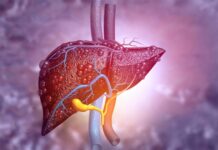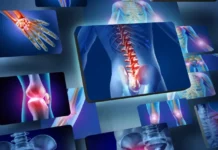 CHICAGO: An investigation into one of the nation’s biggest hospital chains is refocusing attention on concerns about over treatment for chest pain.
CHICAGO: An investigation into one of the nation’s biggest hospital chains is refocusing attention on concerns about over treatment for chest pain.
Many doctors are unclogging arteries to treat the pain, providing quick relief. However, studies have shown medicine is a safer and cheaper alternative for patients whose heart disease isn’t life-threatening.
That research has changed thinking about the wisdom of routinely doing the artery-opening procedures called angioplasties. But experts say money and uncertainty over individual patients’ risks are among reasons doctors have been slower to change their ways.
The Nashville-based hospital chain, HCA Holdings Inc., said that investigators want information about heart procedures performed at some of its 163 hospitals. A New York Times story suggests some patients got needless angioplasties and stents.
About 7 million angioplasties are done each year, and almost half of them are elective, performed on patients with stable chest pain. Evidence suggests the numbers haven’t dropped dramatically since a landmark 2007 study said drug treatment worked just as well at preventing heart attacks and related deaths.
An angioplasty can cost $20,000 and usually involves inserting a small mesh stent to keep arteries propped open. Often an overnight hospital stay is needed. Drug treatment may take a few months to relieve pain and often requires several medicines, including aspirin and statins, but most have generic versions costing hundreds of dollars a year, not thousands.
Patients often want the quicker fix, and Yale University cardiologist Harlan Krumholz says many patients mistakenly think elective angioplasties will do a better job of keeping them alive.
Doctors may disagree with the studies and recommend angioplasties, but they are obliged “to explain to patients that their opinion is at odds with what the evidence is,” Krumholz said.
According to the New York Times, citing internal HCA documents, some of the hospital chain’s patients got invasive treatment even though they had no significant heart disease.
Nationwide data suggest that about 8 percent of non-emergency angioplasties are done inappropriately, on patients who should be getting drug treatment alone instead, said Dr. William Weintraub, cardiology chief at Christiana Care Health System in Newark, Del.
Needless stenting was among procedures to be avoided on a checklist released earlier this year by nine medical societies concerned about over treatment.
Determining which patients should get angioplasties and who shouldn’t isn’t always clear-cut, Weintraub said. Heart disease is the nation’s No. 1 killer and leading cause of disability, and the decision-making “is very, very difficult to do,” he said.
But if patients without any artery blockages got angioplasties and stents, “that’s clear-cut fraud, that’s criminal,” Weintraub said.
Dr. Sanjay Kaul, a cardiologist at Cedars-Sinai Heart Institute in Los Angeles, says he has estimated that about $3 billion could be saved each year nationwide under scenarios that include limiting angioplasties to patients who don’t respond to pills.
A payment system that reimburses doctors for the number of tests and procedures they do is part of the problem, said Dr. Steven Nissen, a Cleveland Clinic cardiologist. “The more procedures they do, the more they are paid. That system creates incentives do to medical procedures, whether it’s a CT scan, or a stent, or a knee replacement. Across the board, Americans undergo more procedures than other people.”
HCA posted a four-page letter on the home page of its website saying the New York Times “appears to be making broad points concerning patient care provided at our company’s affiliated hospitals.” It also says that decisions about the need for some heart procedures are “the subject of much debate in the cardiology community.”
Jefferies & Co. analyst Arthur I. Henderson said investors think the issue may not be as significant as it seemed at first glance.
Henderson, whose firm has no stake in HCA and does no banking business with them, said the hospital operator has a “very robust” compliance program.






